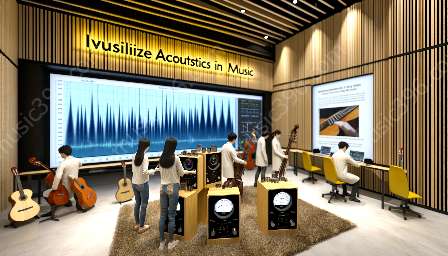Instrumental performance offers a multitude of exciting and diverse career opportunities for musicians. From professional orchestras and chamber ensembles to music education and instrument studies, performers have various pathways to pursue their passion.
Professional Orchestras and Ensembles
One of the most traditional career paths for instrumental performers is to join a professional orchestra or ensemble. Many musicians aspire to perform in renowned orchestras such as the New York Philharmonic, Berlin Philharmonic, or the London Symphony Orchestra. These positions provide stable employment and the opportunity to perform a wide range of repertoire under the guidance of esteemed conductors.
Chamber Music Ensembles
Instrumental performers also have the option to form or join chamber music ensembles. These smaller groups offer a more intimate setting for collaboration and performance, allowing musicians to explore a diverse repertoire and establish their unique artistic voices.
Studio Musicians and Recording Artists
For instrumentalists specializing in popular music genres, the role of a studio musician or recording artist can be an exciting career choice. These musicians often collaborate with singers, songwriters, and producers, contributing their instrumental skills to create chart-topping hits and iconic albums.
Concert Soloists
Instrumental performers who possess exceptional virtuosity and artistry may pursue careers as concert soloists. These musicians have the opportunity to perform as featured soloists with prestigious orchestras, present solo recitals in renowned concert halls, and participate in international music festivals.
Arts Administration and Management
Some instrumental performers choose to apply their musical expertise in arts administration and management roles. These positions involve overseeing concert programming, artist management, and organizational leadership within music institutions and performing arts organizations.
Music Education
Besides performance careers, instrumentalists can embark on fulfilling paths in music education. This may involve teaching private lessons, instructing at music schools and conservatories, or becoming educators in K-12 school settings. Music educators play a crucial role in nurturing the next generation of musicians and fostering a lifelong appreciation for music.
Instrument Studies and Academia
Another avenue for instrumental performers is to pursue advanced studies in their instrument and contribute to the academic field through research, pedagogy, and scholarly publications. This path may lead to careers as university professors, researchers, or authors specializing in instrument studies.
Collaborative Projects and Cross-Disciplinary Opportunities
Instrumental performers often engage in collaborative projects with composers, visual artists, dancers, and other creatives, exploring innovative and cross-disciplinary artistic endeavors. These ventures may involve multimedia performances, interdisciplinary workshops, and community outreach initiatives.
Entrepreneurship and Innovation
Entrepreneurial instrumentalists have the opportunity to innovate and create their own career paths. This could include establishing their music studios, founding music technology startups, launching educational platforms, or curating concert series that showcase diverse musical experiences.
Conclusion
The career opportunities in instrumental performance are vast and dynamic, offering musicians the chance to pursue their passion across a spectrum of professional pathways. Whether it be in professional orchestras, academia, music education, or entrepreneurial ventures, instrumental performers contribute significantly to the cultural landscape and enrich the lives of audiences worldwide.















